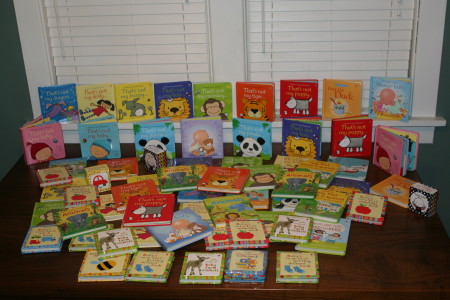*This week I’m hosting a series of guest posts by women in my community who saw a need and decided to do something about it. I find each of their stories inspirational in the most literal sense. Many of us can recognize injustice or weakness or pain, but not many of us ask ourselves, “What can I do about this?” I wanted to ask these women what moved them from the “It’s sad” mentality to the “Let’s fix it” mentality in the hope that it would inspire some of you who are on the fence about tackling a challenge of your own.*
Kayla with Righting the Story
Some info on Kayla
I am a 26-year-old wife and stay at home mom. My husband and I have been married for almost 5 years, and we have an 18 month old daughter and another little girl due the end of June!
I graduated from UNL with my degree in Spanish Secondary Education and a K-12 endorsement in ELL. Straight out of college I worked at Park Middle School as a Spanish teacher for 2 years. I decided to resign at the end of the 2nd year when I was pregnant so I could stay home with my baby, who was born that following October.
I grew up in a home full of books, and I loved reading. I started reading when I was three and a half and haven’t really stopped since! My mom had her Music Education degree and taught piano lessons out of our home for many years. I grew up loving piano, and played every day for hours from the age of 4 to 18.
One final nerdy thing about me: I love research. I actually prefer to read factual books over fiction, although I love both. I love reading medical journals, research papers, etc. Recently I decided to pick up a book about Quantum Physics and String Theory because I had never really read about it. That was a very surreal experience that I don’t think I will probably repeat— but I really enjoyed the process!
What is Righting the Story?
Righting the Story is an organization aimed towards getting books into the homes of low-income children in Lincoln. It serves to inform people of the very solid and startling statistics and research connecting the absence of books in the home to a future of poverty and often times even imprisonment. Once people are informed, the role of Righting the Story is helping equip the community to take action and get as many high quality books as possible into the homes of low-income families in Lincoln.
How did you first notice a need for Righting the Story?
It actually started when I was a teacher at Park Middle School, but I didn’t really know what was happening at the time. As a first year teacher at a Title 1 school, I had very high aspirations to love well, challenge my students, and work as hard as necessary to help them succeed. That was wonderful, except I didn’t realize that a large portion of the population I would be teaching wouldn’t just have home life and behavior issues, they also were often many grade levels behind in reading.
Of course, students don’t tell you that. Instead, they give up. They throw things. They swear. They bring an attitude to class. Students were hiding behind negative behavior because they had grown so tired of the feeling of failure. What I discovered was about a fourth of my students (5-7 in each class period) were giving up within the first five minutes, because they couldn’t even read the directions for the warm up.
I left my second year of teaching very defeated and discouraged (which is very common for teachers at Title 1 schools). I felt so burnt out. I had worked so hard for two years, and I felt like the only thing I had to show for my 2 years was failure.
So, I did what all nerds do in times of crisis. I did research.
There were sticky notes everywhere, because I love research and organization. One topic led to another. I started with a few questions about literacy and poverty, and ended with what felt like—to me—some very shocking and non-controversial findings.
Do you know how rare it is to find research that has been repeated for so many decades that nearly everyone agrees on its validity?
It’s rare. But that’s what I found.
-4th graders reading below grade level are FOUR TIMES MORE LIKELY to drop out of high school than their peers reading at grade level.
-In 2009, 83% of low-income children in 4th grade were reading below grade level.
-The greatest factor in predicting long term academic success is whether or not the child has a home library.
-61% of low-income children do not have any books at home.
These statistics were so startling that at first I didn’t believe them.
So I started making calls. I called the director of the Title 1 program at Lincoln Public Schools. The ELL coach I had worked with in College. The literacy director at Park Middle School. The Media Center director at LPS. The Director of Early Childhood Education at LPS. I told them what I had read. I cited all of the research. They all said the same thing.
“Yep.”
Also, they agreed with me that books in the home matter. And they admitted that there was not enough money to even provide enough books in school, much less to send home with low-income students. One lady said (paraphased) “Absolutely we want to send books home with every single low-income preschooler in our program. But there is no way to even meet the classroom needs they have right now. There’s just not enough money in the budget. And there never will be.”
What made you decide you could meet that need?
So that’s why I took action. I thought, money? That’s it?
Well, not quite. I know money is a “big thing” sometimes. But my main motivation was this: so many people I knew in the community were concerned about poverty. We had talked about the cycle of poverty, and it always just felt unbreakable, inevitable, and way too complicated for the community to intercede with more than bandaids to help people survive poverty.
Of course, the poverty cycle is much more complex than just education. Meeting current needs, addressing emotional hurts, trauma, helping people find healing in their relationships, helping people reconcile with their past stories. . .all of this matters. But a lot of this is happening in our community.
The Book Thing felt like something that was being written off as “not a necessity”. Food. Healthcare. Education. Those are the top three, right?
But the research shows that children being given a high quality education from kindergarten through 12th grade is not enough. Starting in kindergarten is starting with children who are 5 years behind.
So that’s why I started this. I wanted to tell people about how books matter. Not as a token symbol of kindness or goodwill, but as a research based, proven method of building important (the MOST important?) academic and literacy skills a child will need to be successful for the rest of their lives.
It all comes down to access to books in the home, because research shows that choice, enjoyment and continuous access are the greatest predictors of whether or not a young child will become a reader.

A book bag from Righting the Story given out at The People’s City Mission for a child who doesn’t have a home library.
Who encouraged you to pursue this?
My husband was a huge catalyst for me. He got so excited about the research, and he was so supportive when I would spend 12 hours a day researching. He never got mad at the sticky notes. He embraced them. He embraced my research-crazy mind. And he took ownership of his role— supporting me in the background so I could get things done up front. What an amazing guy!
I also have several dreamer/schemer friends who invested in me in the start-up months of this crazy plot. They gave me listening ears, they came to my book fundraisers, they wrote checks, and they told their friends about it. They made me feel like what I was doing mattered—which it did!—but in those early months, it’s helpful to feel the importance. They breathed on the flames when I was starting to feel lost in the details.
What advice would you have for somebody who sees a need in their community?
As a Christian, my advice would be this: if God puts a holy passion in your heart for something, there’s only one basic filter I use to question the necessity or motive: is it seeking justice, loving kindness, and walking humbly with God? If so, then it’s probably worth pursuing. . . and if it’s crazy and seems completely impossible, then it’s even more likely that it’s something God is asking you to do! 🙂
Also, on a more practical level, I would say this: Don’t cling to your initial idea as the God Inspired Hill that you will die on. I have learned so much about poverty, working with the community and communicating well throughout these past few months. At first when people would challenge or ask what I felt like were divisive questions, I would get frustrated and discouraged. But you have to embrace those questions, pray hard, and let God continue to teach you! Seeing the problem is just the beginning, and God is the one who knows the solution! Hold tight to the heart of the mission— His Kingdom Coming —but hold the rest with an open hand! Let him shape your mission, and be willing to accept constructive criticism from those who have learned things the hard way!
Also, you’re going to need to get some post-it notes, and a really awesome day planner.
How can someone start Righting the Story in their area?
The main mission of Righting the Story is to get books into low-income homes.
Communicating the need to the community is a huge part of getting the books purchased and donated, and when you are asking for people’s money, it’s important to have a well-formulated argument! There are a lot of important and wonderful places people can give their money, so helping them see the value in choosing to purchase books for their community is the biggest step. The website I started is very, very basic. But I felt like it was important to have something with the cold-hard facts about why books matter.
I’m still figuring out the best way to get momentum built, but I think you have to focus on a grass-roots movement. If you convince a couple people with big hearts and big mouths that books are the Game Changer, they will spread the word much more efficiently than a fancy website ever could. Although I am learning that fancy websites don’t hurt!
Distributing the books is easy. Calling a teacher a low-income school and saying “I have books for your kids, when can I drop them off?” That’s the awesome part!


3 Comments
Leave a reply →